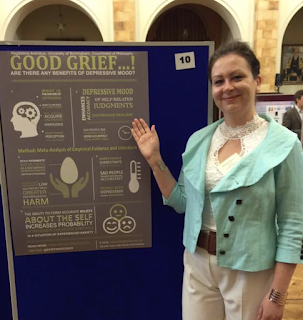Areas of supervision:
- Philosophy of Mind and Philosophy of Psychology
- Philosophy and Ethics of Psychiatry
- Applied Epistemology
- Andrew Wright (The Problems of Pain), February 2015.
- Andrew Woodhall (Addressing Anthropocentrism in Nonhuman Ethics), December 2016.
- Isaura Peddis (Empathy as an Emotion), September 2017.
- Rachel Gunn (Delusions and Affective Framing), November 2017.
- Magdalena Antrobus (Epistemic and Psychological Benefits of Depression), November 2017.
- Ben Costello (Moral Sequencing and Intervening to Prevent Harm), December 2018.
- Alex Miller Tate ('Radical' Cognitive Science and Philosophical Psychopathology: The case of depression), February 2019.
- Matilde Aliffi (Epistemic Rationality of Emotions: A new defence), April 2019.
- Federico Bongiorno (Strange Beliefs: Essays on delusion formation), November 2020.
- Markella Grigoriou (Blunted affect, social withdrawal and suicide in Schizophrenia), November 2020.
- Valeria Motta (Being Present in Times of Absence: A Philosophical and Empirical Enquiry on Loneliness and Solitude), December 2020.
- Eugenia Lancellotta (Can delusions be adaptive? The case of OCD), October 2021.
- Chloe Bamboulis (The role of moral philosophy in CBT and in self construction), January 2023.
- Joseph Houlders (OCD and Complete Certainty: The context of objective thought), April 2023.
- Jane Kisbey (On the nature of psychopathy), June 2023.
- Reinier Schuur (The Disease Versus Morality Distinction: Essays in the Philosophy of Medicine), August 2023.
- Rafael Ambriz Gonzalez (Biomedical Characterisations in Psychiatry), November 2023.
- Jessica Sutherland (Can we blame them? An examination of the moral responsibility of current and former child soldiers), October 2023.
- Kathleen Murphy-Hollies (Confabulating well: the ethics of confabulation), March 2024.
- Aneela Khan (Exploring Epistemic Injsutice amongst Clinical and Non-clinical Groups with Unusual Experiences), September 2024.
 |
| Magdalena Antrobus presenting her poster |
Current doctoral projects
- Noorit Larsen (Ethical decision making in people suffering from mood disorders), 5th year p/t. Co-supervised with Matthew Broome and Anna Lavis.
- Rosa Ritunnano (Self, World and Meaning: Integrative Phenomenological Approaches to Psychosis Onset and Delusion Formation), 3rd year p/t. Co-supervised with Matthew Broome.
- Aisha Qadoos (Trauma and the Self), 2nd year. Co-supervised with Chiara Brozzo.
- Eleanor Harris (Delusions: Epistemic injustice and epistemic vigilance), 3rd year. Co-supervised with Ema Sullivan-Bissett and Ian Kidd.
- Matthew Williams (BID), 1st year. Co-supervised with Matthew Broome.
 |
| Postdoctoral researchers: Anneli Jefferson, Sophie Stammers, Kathy Puddifoot, Ema Sullivan-Bissett, Kengo Miyazono, Andrea Polonioli. |
Mentorship of postdoctoral researchers
I have had the fortune to mentor a number of extraordinary post-doctoral researchers:
- Kengo Miyazono, visiting post-doc in 2013-2015 and now Faculty at Hokkaido University (Japan).
- Ema Sullivan-Bissett, PERFECT post-doc and now Faculty at the University of Birmingham (UK).
- Anneli Jefferson, post-doc on the Costs and Benefits of Optimism project in 2015-2016 and Leverhulme Early Career Research Fellow at the University of Birmingham 2016-2019, now Faculty at the University of Cardiff (UK).
- Kathy Puddifoot, PERFECT post-doc in 2015-2018 and now Faculty at the University of Durham (UK).
- Andrea Polonioli, PERFECT post-doc in 2016-2017 and now product marketing manager and business developer.
- Sophie Stammers, PERFECT post-doc in 2016-2020 and now software engineer in a renewable energy company.
- Kathleen Murphy-Hollies, EPIC post-doc in 2023-2026.
- Jodie Russell, EPIC post-doc in 2024-2027.
